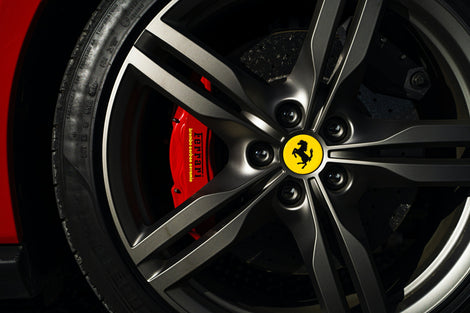OEM Parts vs. After Market Parts
Understanding the difference between Original Equipment Parts (OEM) and aftermarket parts can help you decide on the best parts for repairs for your vehicle. Original equipment parts are the parts used initially to build your car from the manufacturer. Aftermarket parts are parts that are made and sold by other companies that are not the original manufacturer. At one time, only the companies that made the specific car would produce all the parts, thus making this the only way to source any new or replacement parts. This isn't the case these days, and many automobile companies make and supply parts for a variety of different vehicles.
At Alpine Performance, we want you to be fully informed when it comes to sourcing parts for your vehicle to repair or replace existing components.
How OEM and aftermarket parts differ
If you take your vehicle to a dealership for repairs and maintenance, chances are you will be using OEM parts. These are parts bought directly from the manufacturer using their own supply chain. This means as the specific dealer will have originally built the car in the factory, the additional parts sourced for repairs or replacements will be explicitly created to fit to the exact dimensions. Original Equipment Parts will tend to be more expensive than the comparable aftermarket part as it will be coming directly from the source to fit your exact make and model.
Primarily, it comes down to cost, how much you are willing to pay and personal preference. While aftermarket parts may be up to the same standard and in some cases better quality, you may still prefer to go with an element you know is made explicitly for your car. It is worth bearing in mind that some manufacturers who supply aftermarket products succeed in eliminating known weaknesses and inefficiencies, making them a better choice than their OEM counterparts.
Aftermarket parts will be comparably cheaper. This is because the company that produces them may make the part you need for a variety of different companies, so the piece will be more generic to fit a multitude of makes and models. A more generic part could not be as good a fit like an OEM part will be, however, if you don't want to part with a lot of cash or you are happy with the manufacturer, chances are the aftermarket part will be up to the same high spec as the OEM. Remember, once cars are driven, the decrease in value. It could be counterproductive to replace parts with expensive counterparts, especially if you aren't looking to hold not the vehicle for a long time. That being said, if you want to make an investment and get the best out of your car, this could be a swaying factor in your final decision.
Ultimately, the choice on whether to choose OEM or aftermarket parts is up to you. Cost does play a significant role in what will sway your decision. For some the assurance and quality of buying OEM over generic will be a peace of mind and something they won't want to compromise on.

